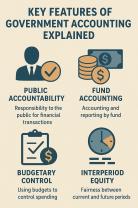Why do we call credit bureau?
Credit bureaus, also known as credit reporting agencies, play a crucial role in the financial system and are called upon for several reasons:
Credit Reporting: The primary role of credit bureaus is to collect and maintain information about individuals' and businesses' credit histories. They gather data from various sources, including lenders, credit card companies, and other financial institutions. This information is used to create credit reports for individuals and credit profiles for businesses. These reports and profiles contain details about a person's or business's credit accounts, payment history, outstanding debts, and other financial information.
Credit Scoring: Credit bureaus use the data they collect to calculate credit scores for individuals and businesses. Credit scores, such as FICO scores or VantageScore, are numerical representations of creditworthiness. Lenders and other financial institutions use these scores to assess the risk associated with extending credit to a borrower. Higher credit scores indicate a lower credit risk, while lower scores suggest a higher risk.
Credit Decisions: Lenders and creditors rely on credit reports and credit scores provided by credit bureaus to make informed decisions about whether to approve credit applications, such as loans, credit cards, or mortgages. The information helps them evaluate an applicant's ability to manage credit responsibly and repay debts.
Risk Assessment: Credit bureaus help businesses, landlords, and other entities assess the creditworthiness of potential customers or tenants. This is particularly important for businesses that offer goods or services on credit or for landlords looking to rent properties to individuals or businesses.
Fraud Detection: Credit bureaus can also play a role in detecting identity theft and fraudulent credit applications. If a person's credit report shows unfamiliar or suspicious activity, it may indicate potential fraud, and the credit bureau can notify the affected individual.
Compliance with Regulations: Financial institutions and lenders are often required by law to use credit reports and credit scores when making lending decisions. Credit bureaus help these institutions comply with regulatory requirements.
Consumer Access to Credit Information: Credit bureaus provide individuals with access to their credit reports, allowing them to review their credit history and dispute any inaccuracies. This access helps consumers monitor their financial reputation and take steps to improve their credit profiles.
In summary, credit bureaus are called upon because they serve as critical repositories of financial information that is used to assess creditworthiness, make lending decisions, detect fraud, and ensure compliance with regulatory requirements. Their role is essential in the functioning of the financial system and the extension of credit to individuals and businesses.
Credit bureaus play an important role in the financial system by providing information about consumers' credit history. This information is used by lenders to make decisions about whether or not to approve loans and what interest rates to charge.
Credit bureaus collect information about consumers from a variety of sources, including banks, credit card companies, and other lenders. This information includes things like how much money consumers owe, how often they make their payments on time, and whether or not they have ever filed for bankruptcy.
Credit bureaus use this information to create credit reports for consumers. Credit reports are summaries of a consumer's credit history that are used by lenders to evaluate a consumer's creditworthiness.
Credit bureaus are important because they help lenders to reduce their risk of making bad loans. By having access to a consumer's credit report, lenders can see how the consumer has managed their credit in the past and get a better sense of how likely they are to repay a loan in the future.
Credit bureaus also benefit consumers by providing them with a way to track their own credit history. Consumers can obtain their credit reports for free once a year from each of the three major credit bureaus: Equifax, Experian, and TransUnion. By reviewing their credit reports, consumers can identify any errors and take steps to correct them.
Here are some specific reasons why we need credit bureaus:
- To help lenders make informed lending decisions. Credit bureaus provide lenders with the information they need to assess a borrower's creditworthiness and make informed lending decisions. This helps to reduce the risk of lenders making bad loans.
- To promote financial inclusion. Credit bureaus help to promote financial inclusion by providing access to credit for people with all types of credit histories. This is because lenders are more likely to approve loans for borrowers with good credit history, but credit bureaus also provide information about borrowers with limited or poor credit history. This information can help lenders to make more informed lending decisions and approve loans for borrowers who may not otherwise be able to qualify for credit.
- To protect consumers from fraud. Credit bureaus help to protect consumers from fraud by providing them with access to their credit reports. By reviewing their credit reports, consumers can identify any unauthorized activity on their credit accounts and take steps to protect themselves from fraud.
Overall, credit bureaus play an important role in the financial system and benefit both lenders and consumers.













